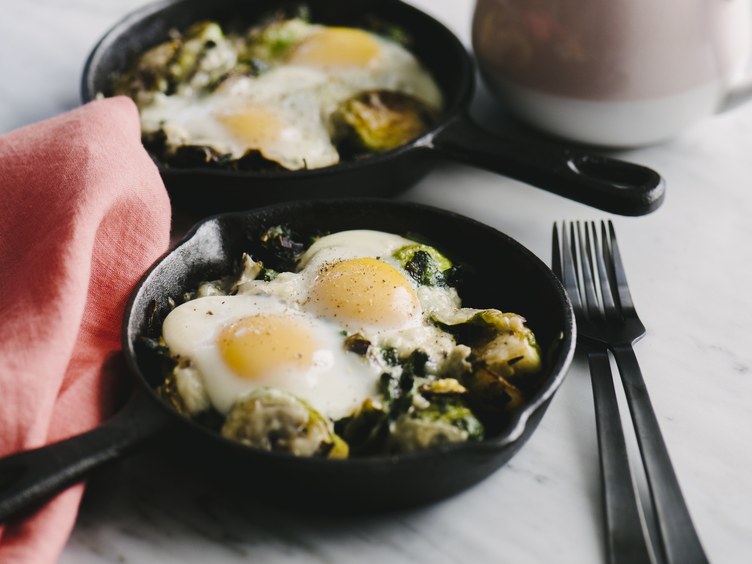
What Are BCAAs—and How Do They Affect Your Workouts?
Are BCAA benefits legit?
What if there was a secret sauce that could help you recover faster from your workouts—so you could crush it even harder next time? Well, that pretty much already exists—we’re talking about BCAA, or branched-chain amino acids. If your workouts are intense—say a grueling round of HIIT that leaves you sore for days—BCAAs could raise your fitness game a notch and even help torch fat. Here’s what you need to know about how to incorporate these muscle menders into your diet.
What Are BCAAs?
When your glycogen stores run low, your body relies on the three types of BCAAs (leucine, isoleucine, and valine) for fuel, explains Lauren Simmons, R.D., C.S.C.S., of Core Dynamics. The catch: Your body can’t produce BCAAs on its own, so you’ll need to get them from your diet.
And here’s why it’s worth loading up on this nutrient: Especially when eaten around your workout, “BCAAs can help promote muscle growth and repair and reduce muscle soreness after exercise,” says Isabel Smith, R.D. Simmons warns, however, that while they may make you feel less tired after a workout, they won’t improve athletic performance.
In addition to making your workouts more efficient, some studies have found that the BCAA leucine, specifically, may help you feel more full by improving sensitivity to the hunger hormone leptin, explains Smith. Other research indicates that leucine could help promote fat burning and balance your blood sugar levels. And that’s important because imbalanced blood sugar levels can lead to weight gain, Smith says.
When to Eat BCAAs
BCAAs aren’t necessary for every workout. But during intense exercise, your muscles tear slightly and then repair, growing stronger in the process—and that’s when you need BCAAs. “I’d recommend BCAAs for strength and interval training, rather than 30 a minute jaunt on the elliptical,” says Smith.
Your BCAA needs depend on a number of factors, including your size and the intensity of your workouts, which is why it’s a good idea to talk to an expert before making any drastic changes to your diet. If you’re just getting started or looking for a bit of a boost, Smith suggests timing your meals around your workouts, so you eat within about an hour of finishing your sweat sesh. “It’s worth trying to see if you have more energy and less fatigue and soreness,” she says.
How Much Is Enough?
Research shows that a three- to five-gram serving of BCAAs is a good amount for most women, says Smith. You can get that by consuming a three to four-ounce serving of cooked animal protein. “More than anything, it’s about timing. It’s most important to plan to eat BCAAs around your training session, ” she says.
These foods each contain all three types of BCAAs in one serving:
Chicken breast
Lean beef
Flank steak
Canned tuna
Wild salmon
Haddock
Cod
Whitefish
Trout
Turkey breast
Eggs (3)
Lowfat Greek yogurt (1 cup)
Simmons notes that brown rice, quinoa, chickpeas, lima beans, whole wheat, peanuts, brazil nuts and almonds all contain decent amounts of BCAAs, too.
What About BCAA Supplements?
If you don’t eat meat or just don’t like chicken all that much, experts agree there are lots of good lower-calorie supplements, many of which are made with vegetarian-friendly whey protein or soy protein isolate. Plus, Simmons notes that liquid supplements take effect faster, since they don’t have to be digested like whole foods—making them a good option if you want to get a BCAA boost before your workout but don’t like exercising with food in your stomach.
If you decide to go the supplement route, both dieticians recommend opting for one with a third-party certification by a reputable group like NSF or Informed Choice. (That’ll help ensure that your supplements aren’t fake.) Simmons says to look for a ratio of 2:1:1 or 3:1:1 of leucine/isoleucine/valine. Smith also suggests checking the label and opting for a “clean” product without added chemicals, sweeteners, or dyes.
Just check in with your doctor or a dietician before scooping. “I don’t think women should start chugging BCAA supplements unless they’re doing it in a targeted way,” says Smith.








